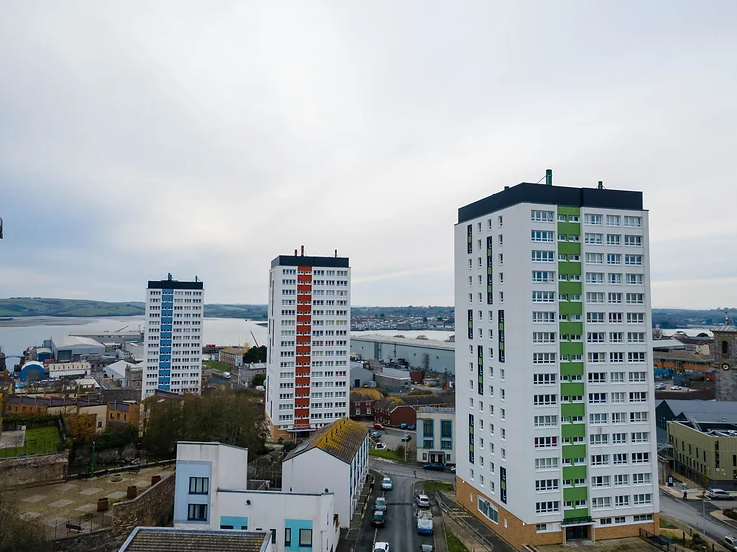
The United Kingdom has set a legally binding target to achieve net zero greenhouse gas emissions by 2050.
To achieve this goal, the country will need to significantly reduce emissions from various sectors, including power generation, transportation, industry and importantly housing.
As such, social housing companies in the UK, like all housing providers, are under pressure to reduce their carbon emissions and contribute to the country's wider net zero target. These targets come with their own challenges for housing associations from funding, to working to find solutions with tenants in situ. As retrofit specialists LivGreen are in a prime position to help social housing associations navigate their way to achieving their Net Zero goals.
There are a number of ways that social housing companies can work towards achieving net zero emissions, including:
Improving Energy Efficiency In Existing Properties: Social housing companies can retrofit their properties with energy-efficient measures such as insulation, double glazing and efficient boilers to reduce the energy consumption of their tenants and therefore properties. Decarbonising heating systems - Many social housing properties still rely on fossil fuels for heating, so one of the most significant ways to reduce emissions is to switch to low-carbon alternatives such as heat pumps or district heating systems.
Installing Solar Panels: Social housing companies can install solar panels on the roofs of their properties to generate renewable electricity and reduce dependence on fossil fuels.
Building New Low Carbon Homes: Social housing companies can design and build new homes to be highly energy efficient and constructed with low carbon materials
Procurement : When purchasing products and services, companies can prioritise sustainability and low carbon options
Education & Awareness: Helping tenants understand their energy consumption and how they can reduce it, and provide information and support on how to use low carbon appliances and systems.
It’s worth noting that some social housing providers have been proactive in implementing these measures and set their own ambitious targets for net zero, however other associations may face significant financial and practical barriers to achieving these net zero targets. Access to funding is currently the most significant obstacle for Social Housing associations. With the recent submission deadline for the Social Housing Decarbonisation Fund (SHDF Wave 2.1) having now passed, the future of funding for housing associations is uncertain. This has been raised in the recent report compiled by the regulators committee on behalf of the House of Lords who have urged the government to publish its plans for funding the net zero transition. With the report set to be discussed in the House of Lords on 20th January 2023, we’re hopeful that the government will share further information on the future plans for funding soon.
Source: Lords Library Parliament
There are some fears that the SHDF funding is under threat of being cut as the governments pledged £1bn investment in energy efficiency measures announced by former PM, Liz Truss, may be partly funded by taking unallocated funds from schemes such as SHDF. Social housing should remain the priority for a number of reasons but most importantly, Social housing contains a higher proportion of vulnerable people than other housing types and as such social housing residents are likely to gain the most from improvements to their properties. Inside Housing state that those currently in EPC D-rated homes are estimated to save an average of £437 a year annually on their energy bills.
If you would like to find out more information on how to reduce the Carbon footprint of your existing property portfolio or would like to speak about the challenges that you’re facing then please get in touch with LivGreen today and we can help you navigate the challenges of achieving Net Zero.


Leave Your Comment Here